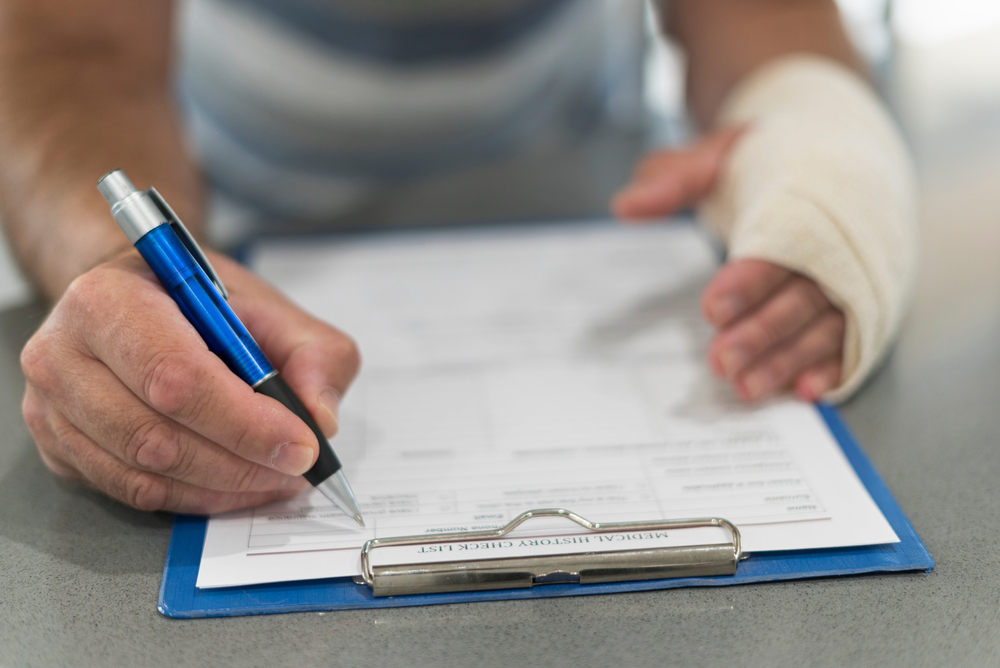Depositions are a crucial part of the discovery process in a personal injury lawsuit. During litigation, each side has the opportunity to conduct depositions of the case’s opposing parties — as well as witnesses — to gain more information about the accident and uncover potential evidence. Importantly, the testimony provided during a deposition can often determine whether the case will proceed to settlement or go to trial.
What is a Deposition?
A deposition is sworn testimony given under oath and transcribed by a court reporter. Significantly, depositions are conducted outside of court and there is no judge or jury present. However, the statements made during a deposition may still be admissible at trial under certain circumstances.
An attorney may choose to depose anyone with knowledge regarding the facts of the case. In a personal injury case, depositions aren’t only taken of the plaintiff and defendant. Non-parties such as eyewitnesses, property owners, and experts can also provide sworn testimony that can be particularly valuable. If the individual from whom a deposition is sought will not appear voluntarily, a subpoena may be served to compel them to testify.
What to Expect at a Deposition
Depositions are scheduled in advance and are usually held at either an attorney’s office or the court reporter’s office. They can last anywhere from 30 minutes to seven hours, depending on the complexity of the case.
Before the deposition begins, the party or witness takes an oath to answer the questions honestly. Once the deponent is sworn in, the attorney for the opposing side will ask a series of questions, which is called direct examination. After the questioning has concluded, the other attorneys will have the opportunity to cross-examine the deponent.
Either party may object to a question that is asked, but it’s essential to understand that the types of objections that apply at trial aren’t always the same for depositions. For instance, while hearsay is inadmissible at trial, much of the information provided during a deposition may actually be hearsay. Many of the objections made at deposition concern the form of the question.
What Kinds of Questions is a Plaintiff Asked at a Personal Injury Deposition?
Depositions are crucial for gathering evidence, assessing the credibility of a witness, and determining whether a case should settle. Specifically, the defense will ask the plaintiff a number of questions regarding the facts and circumstances of the accident to evaluate the strength of their case, and learn how they would testify at trial. A plaintiff at a personal injury deposition can expect to be asked a series of questions that seek the following information:
- Personal background information
- How the accident happened
- Whether there were witnesses to the accident
- The types of injuries sustained in the accident
- Any health conditions or pre-existing injuries
- Medical treatment rendered for the injuries
- How the injuries affected the plaintiff’s usual activities
- The extent of the medical bills incurred
- The amount of time lost from work
Additionally, a plaintiff may also be shown relevant photos or documents during the deposition, and asked questions about them. Such exhibits will be entered into the record and become part of the deposition transcript.
What Happens After a Deposition?
After a deposition, the court reporter will create the transcript and provide copies to each party. According to New York’s Civil Practice Law and Rules, the party or witness that provided the testimony will have an opportunity to review it and make any changes to the form or substance of a response. If the deponent must make any changes, they are attached at the end of the transcript.
Notably, the deponent must sign the deposition transcript before a notary. If the transcript is not signed and returned within 60 days, it can be used at trial, just as if it had been signed. After the 60-day time frame has passed, the deponent cannot make any modifications to their testimony.
Contact an Experienced New York Personal Injury Attorney
If you’ve suffered injuries due to the another’s negligence, it’s crucial to have a personal injury attorney by your side who can protect your rights and guide you through the legal process. The Dearie Law Firm, P.C. has over 30 years of experience representing clients for a wide range of personal injury matters.
The Dearie Law Firm, P.C. has convenient office locations in Manhattan, the Bronx, and Brooklyn, as well as mobile locations serving Brooklyn, Queens, Manhattan, the Bronx, Staten Island, Westchester County, Rockland County, Nassau County, and Suffolk County. Contact us today for a consultation.

